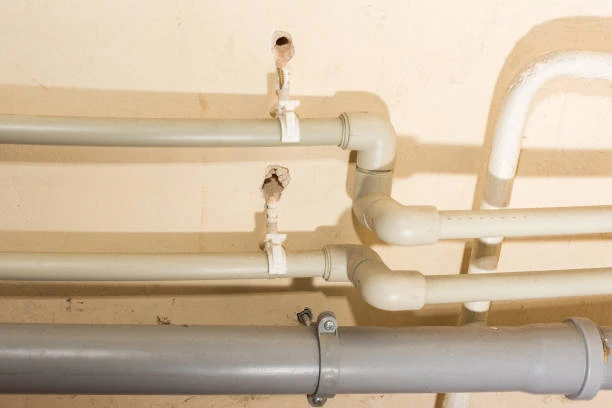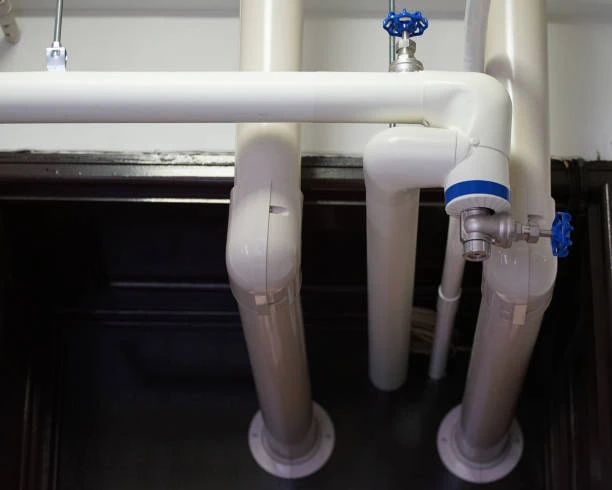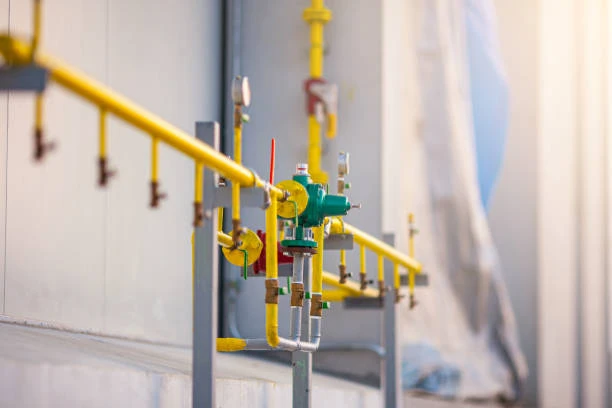Introduction to PPH Piping Systems
PPH piping, or Polypropylene Homopolymer piping, is widely used in industries for transporting liquids and gases. Known for its exceptional chemical resistance and durability, PPH pipes have become a staple in sectors like chemicals, food processing, and water treatment. Unlike traditional materials, PPH offers a lightweight yet robust solution for demanding environments.
Why is PPH so popular? The answer lies in its ability to handle extreme temperatures and corrosive substances while being easy to install and maintain. Whether you’re building a new system or upgrading an old one, understanding the nuances of PPH piping industry can make all the difference.
Benefits of Using PPH Piping Systems
Chemical Resistance
PPH piping systems are impervious to most acids, alkalis, and solvents, making them ideal for industrial chemical transport.
High-Temperature Tolerance
PPH can withstand temperatures up to 100°C without compromising structural integrity, perfect for hot water distribution.
Lightweight Yet Durable
Compared to metal pipes, PPH pipes are easier to handle and install, reducing labor costs and project timelines.
Cost-Efficiency
With lower maintenance requirements and a longer lifespan, PPH piping is a cost-effective choice for industries aiming to cut operational expenses.
Understanding PPH Piping Components
PPH piping systems consist of multiple parts that work together to ensure efficient operation. Here’s what you need to know:
Pipes, Fittings, and Valves
The pipes form the main pathway, while fittings and valves control the flow. Each component must meet industry standards for quality.
Flanges
Flanges are essential for connecting pipes securely. They also facilitate system disassembly during maintenance.
Accessories
Accessories like clamps, hangers, and seals enhance system stability and prevent leaks.
Pre-Installation Preparation
Proper preparation is critical to a successful PPH piping installation.
Tools and Equipment
Ensure you have essential tools like pipe cutters, welding machines, and alignment tools.
Inspecting Materials
Check pipes and fittings for cracks or deformities to avoid issues during installation.
Safety Measures
Always wear protective gear and follow safety guidelines to minimize risks.
Designing the PPH Piping System Layout
Start by analyzing your operational needs and sketching a detailed layout. Consider factors like pressure, temperature, and fluid type. Ensure the design includes proper slope and alignment to prevent flow disruptions.
Steps to Install PPH Piping Systems
Cutting and Preparing Pipes
Use pipe cutters to achieve clean cuts. Smooth pipe ends to ensure a snug fit with fittings.
Joining PPH Pipes
Welding is the most common method for joining PPH pipes. Whether you use socket fusion or butt welding, follow the manufacturer’s instructions carefully.
Installing Valves and Fittings
Position valves strategically for easy operation. Secure all fittings tightly to avoid leaks.
Post-Installation Checks
Once installed, inspect the system for leaks and misalignments. Perform pressure tests to ensure the system can handle operational demands without failures.
Maintenance of PPH Piping Systems
Maintenance is essential for long-term performance. Clean pipes periodically to remove buildup. Inspect components for signs of wear, and replace them as needed.
Common Applications of PPH Piping
Industries across the globe rely on PPH piping for various uses:
- Transporting aggressive chemicals.
- Distributing hot water in industrial facilities.
- Supporting food and pharmaceutical production processes.
Troubleshooting Installation Issues
Encountered a problem? Here are solutions:
- Leaks: Check fittings and seals for proper placement.
- Misalignment: Realign pipes and ensure the slope matches the design.
- Weak Joints: Reweld connections if necessary.
Safety Guidelines for Installation and Maintenance
Always prioritize safety:
- Wear PPE, including gloves and goggles.
- Handle tools and materials carefully to avoid injuries.
- Work in well-ventilated areas to prevent inhalation of fumes.
Future Trends in PPH Piping Industry
The PPH piping industry is evolving with innovations like reinforced materials and sustainable practices. As industries aim for eco-friendly solutions, PPH is set to become even more significant.
Conclusion
Installing a PPH piping system might seem daunting, but with the right knowledge and preparation, it’s a straightforward process. From its durability to its versatility, PPH piping is an excellent choice for modern industries. By following the steps outlined here, you can ensure a successful and efficient installation.
FAQs
1. What makes PPH piping ideal for industrial use?
Its chemical resistance, durability, and cost-efficiency make it perfect for demanding applications.
2. Can PPH pipes handle high temperatures?
Yes, they can tolerate up to 100°C, making them suitable for hot fluids.
3. How do I ensure a leak-free installation?
Use proper welding techniques and inspect joints thoroughly.
4. What maintenance is required for PPH systems?
Regular cleaning, inspection for wear, and timely replacement of worn components.
5. Are PPH pipes eco-friendly?
Yes, they are recyclable and contribute to sustainable industrial practices.
IFAN Products international standards
IFAN products strictly adhere to a comprehensive range of international standards, encompassing ISO 15874, EN 15874, ASTM F2389, DIN 8077/8078, GB/T 18742, NBR 15884, ISO 15494, EN ISO 15494, GB/T 19472, NBR 15494, ASTM 2846 (501), DIN 8079/8080 (502), ASTM F441/F441M SCH80 (503), DIN (504), DIN (505), GB/T 18993, AS/NZS 1477, CSA B137.6, NSF/ANSI 14, TIS 17-2532/1131-2535, BS 3505, BS 4346 (801), ASTM D1785 SCH40 (802), ASTM D1785 SCH80 (803), DIN (804), GB (805), GB (806), GB(901), DWV(902), ASTM D2665 (903), along with ASTM D2241, D2665, D2729, and F441/F441M series, ISO 1452, EN ISO 1452, DIN 8061/8062, GB/T 10002, AS/NZS 1477, JIS K6741, CSA B137.3, and other national and industry norms.
Connect
IFAN is a Chinese manufacturer of plastic pipes, fittings and valves with 30 years of experience. If you are interest in IFAN copper fittings, copper valves, plastic pipes and fittings, please contact us. IFAN offers you a variety of standard pipes to meet your specific needs. Click below to learn more about IFAN’s wide range of affordable and cost-effective valve products and piping system related products.
We will reply your email or fax within 24 hours.
You can call us at any time if there is any question on our production.
For more information,pls visit our webside https://waterpipefitting.com/
Pls Mailto: [email protected]
Whatsapp: + 86 19857948982














Recent Comments